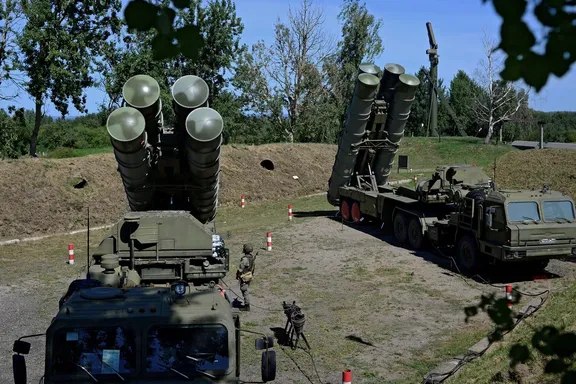Russia will meet Iran's military needs despite UN sanctions, Lavrov says

Russia is permitted by international law to step up military ties with Iran even after UN sanctions were reimposed last month, Foreign Minister Sergey Lavrov said on Monday.

Russia is permitted by international law to step up military ties with Iran even after UN sanctions were reimposed last month, Foreign Minister Sergey Lavrov said on Monday.
The comments may signal stepped-up security cooperation between the two heavily-sanctioned powers deeply at odds with Washington and the West.
A troika of European powers triggered the reimposition of international sanctions on Iran last month, accusing Tehran of spurning diplomacy and nuclear inspections.
Russia and China sought to block the move at the UN Security Council on September 26 not enough member states supported their bid and the sanctions were reimposed the following day.
Asked in Moscow whether Russia would continue cooperating with Tehran on advanced military systems including the S-400 air defense system, Lavrov confirmed the relationship would advance.
“We will develop military-technical cooperation with Iran. After you noted the UN Security Council sanctions, we have no restrictions," RIA Novosti quoted Lavrov as saying.
"In full compliance with international law, we are engaged in supplying the equipment that the Islamic Republic of Iran needs.”
Iranian-designed drones have been key to Russia's war effort against Ukraine
While Iranian-designed drones have been key to Russia's war effort against Ukraine, Moscow provided little support during the brief summer war.
The two countries have signed a long-term security framework, but Russia’s restraint underscores the limits of its backing.
Earlier this month, leaked Russian defense documents indicated Iran had signed a €6 billion deal to buy 48 Su-35 fighter jets from Moscow, with deliveries expected between 2026 and 2028.
Last month, an Iranian lawmaker said Russian MiG-29 fighter jets had arrived in Iran as part of a short-term plan to bolster its air force, with more advanced Sukhoi Su-35 aircraft to follow gradually.
Iran has long sought to modernize its aging air force, which relies heavily on US-made jets purchased before the 1979 revolution and a small number of Russian and locally upgraded aircraft.
Western analysts say Iran’s request for 50 aircraft remains only partly fulfilled, with deliveries slowed by Russia’s own needs in Ukraine.
Tehran also faces vulnerability in air defenses after Israeli strikes earlier this year destroyed its last Russian-provided S-300 systems. Iran had acquired the four S-300 battalions from Russia in 2016.